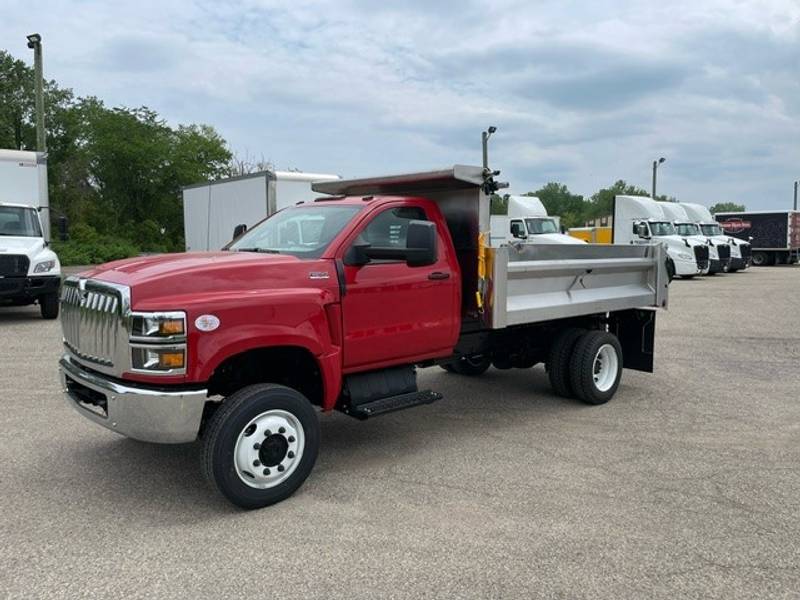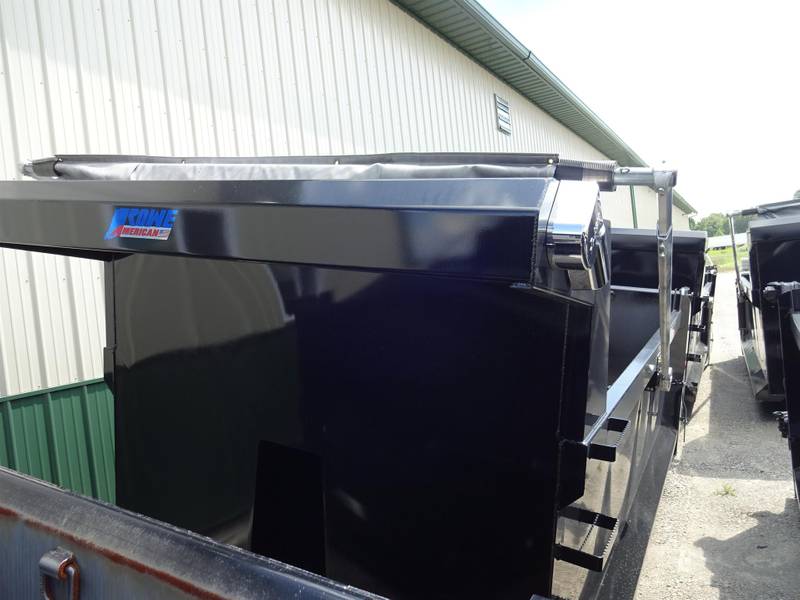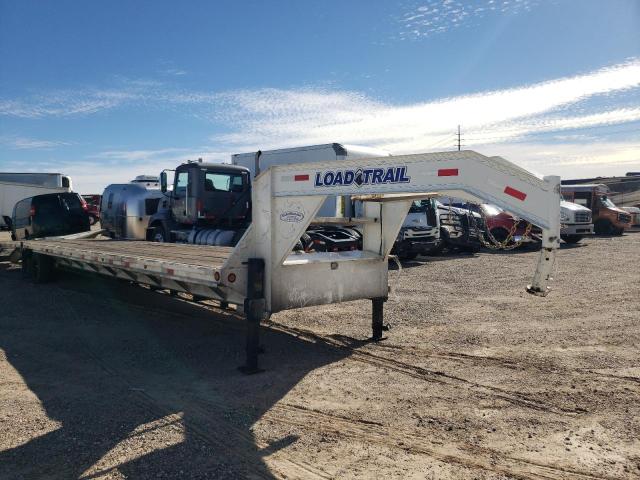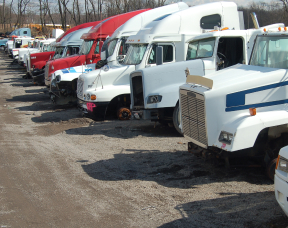Salvage Dump Trucks For Sale: Unearthing Value in the Used Market pickup.truckstrend.com
In the demanding world of construction, mining, and heavy haulage, dump trucks are indispensable workhorses. However, the cost of new equipment can be astronomical, often pushing businesses and independent operators to seek more economical alternatives. This is where the market for Salvage Dump Trucks For Sale emerges as a compelling, albeit complex, option. Far from being mere scrap, these trucks represent a unique opportunity for significant cost savings, parts harvesting, or a rewarding restoration project for those with the right expertise and resources.
This comprehensive guide will delve into the intricacies of acquiring salvage dump trucks, exploring their definition, the benefits they offer, crucial buying considerations, potential challenges, and practical advice to navigate this specialized segment of the heavy equipment market.
Salvage Dump Trucks For Sale: Unearthing Value in the Used Market
What Defines a Salvage Dump Truck?
A "salvage" title is assigned to a vehicle that has been deemed a total loss by an insurance company due to significant damage. This damage can stem from a variety of incidents, including:
- Accident Damage: Collision, rollover, or impact that compromises the structural integrity or major components.
- Flood Damage: Submersion in water, leading to electrical, engine, or interior issues.
- Fire Damage: Extensive damage to the cab, engine, or frame due to a fire.
- Theft Recovery: Trucks recovered after being stolen, often with missing parts, altered VINs, or cosmetic damage.
- Mechanical Failure: Catastrophic engine, transmission, or axle failure that is too costly to repair relative to the truck’s pre-damage value.
- Vandalism: Significant damage caused by malicious acts.

It’s crucial to understand that "salvage" does not always mean "destroyed." Sometimes, a truck with relatively minor damage can be declared a total loss if the repair costs exceed a certain percentage (e.g., 70-80%) of its market value, especially for older models. This creates opportunities for buyers willing to invest in repairs.
Why Consider Salvage Dump Trucks? The Benefits
The primary allure of salvage dump trucks lies in their potential for substantial savings. Here are the key benefits:

- Significant Cost Savings: The initial purchase price of a salvage dump truck is often a fraction of what you would pay for a comparable used or new model. This can free up capital for other business needs or allow you to acquire a higher-spec truck than your budget would otherwise permit.
- Parts Harvesting: For businesses with an existing fleet, a salvage truck can be an invaluable source of spare parts. Engines, transmissions, axles, hydraulic components, and even cab parts can be salvaged, saving immense costs on new replacements and minimizing downtime for other trucks.
- Project-Specific Use: If you need a dump truck for a short-term project, or one that will operate in harsh conditions where cosmetic appearance is irrelevant, a repaired salvage truck can be an ideal, low-cost solution.
- Restoration Potential: For skilled mechanics or those with access to affordable labor, a salvage truck can be a rewarding restoration project. Bringing a damaged truck back to operational status can be a point of pride and a financially shrewd move.
- Quick Availability: Salvage auctions and yards often have a steady supply of trucks, meaning you might find what you need faster than searching the conventional used market.

Navigating the Market: Where to Find Salvage Dump Trucks
Finding salvage dump trucks requires knowing where to look:
- Online Salvage Auctions: Platforms like Copart, IAAI (Insurance Auto Auctions), and Ritchie Bros. Auctioneers frequently list heavy trucks, including dump trucks, that have been deemed salvage. These platforms offer detailed listings, photos, and sometimes inspection reports.
- Physical Salvage Yards/Auto Wreckers: Many large salvage yards specialize in heavy equipment. Visiting these yards allows for in-person inspection and negotiation.
- Specialized Heavy Equipment Dealers: Some dealers buy salvage trucks, repair them, and then resell them. While the price might be higher than direct from auction, these trucks often come with some level of repair or reconditioning.
- Online Marketplaces: Websites like eBay Motors, Craigslist, and specialized heavy equipment forums or Facebook groups can also feature listings from individuals or smaller businesses selling salvage trucks.
- Direct from Insurance Companies: Occasionally, insurance companies might directly liquidate salvage assets, though this is less common for individual buyers.
The Inspection Process: Crucial Steps Before You Buy
This is arguably the most critical step. Never buy a salvage dump truck sight unseen if possible. If an in-person inspection isn’t feasible, hire a third-party inspector.
- Visual Inspection (Overall):
- Frame Integrity: Check for bends, cracks, twists, or significant rust on the main frame rails. Frame damage can be extremely difficult and expensive to repair.
- Cab Damage: Assess the extent of damage to the cab – crushed roofs, bent doors, dashboard integrity, and seat condition.
- Dump Body Condition: Look for dents, cracks, rust, and the condition of the hydraulic cylinders and lift mechanism.
- Tires and Wheels: Note the wear, condition, and any obvious damage.
- Mechanical Assessment:
- Engine: Check for leaks, obvious damage, missing components, and signs of fire or water intrusion. If possible, attempt to start the engine (though often not possible at auctions). Listen for unusual noises.
- Transmission: Check fluid levels (if accessible), look for leaks, and assess the linkage.
- Axles and Suspension: Inspect for bent axles, damaged leaf springs, air bags, or shock absorbers.
- Hydraulic System: Examine the pump, hoses, cylinders, and reservoir for leaks or damage.
- Fluid Checks: Look for evidence of oil, coolant, or hydraulic fluid leaks. Check fluid levels and color if possible. Water in the oil or milky oil indicates serious engine issues.
- Electrical Systems: Assess wiring harnesses for cuts, burns, or rodent damage. Check lights (if power is available), gauges, and any electronic modules. Flood-damaged vehicles often have extensive electrical problems.
- Documentation: Verify the VIN, engine serial number, and any available maintenance records.
Pro Tip: Bring a flashlight, a magnet (to check for body filler), and potentially a code reader if the truck has power. Most importantly, factor in the cost of a professional third-party inspection from a qualified heavy equipment mechanic. Their expertise can uncover hidden issues that you might miss.
Understanding Salvage Titles and Legalities
A salvage title indicates that the vehicle has been declared a total loss. This has significant implications:
- Re-titling Process: To legally operate a repaired salvage dump truck on public roads, you will need to apply for a "rebuilt" or "restored" title. This usually involves:
- Completing all necessary repairs.
- Undergoing a rigorous state inspection to verify repairs and ensure the truck is roadworthy.
- Providing documentation of repairs (receipts for parts, labor).
- Paying associated fees.
- Regulations vary significantly by state/province, so research your local Department of Motor Vehicles (DMV) or equivalent agency thoroughly.
- Insurance Challenges: Insuring a rebuilt salvage dump truck can be more difficult and expensive. Some insurance companies may refuse to insure them for full coverage, or only offer liability.
- Resale Value: Even after being rebuilt, a truck with a "rebuilt" title will generally have a lower resale value than a clean-title truck, even if in excellent condition. Buyers are often wary of the history.
Cost Considerations and Budgeting
Beyond the purchase price, a realistic budget for a salvage dump truck must include:
- Purchase Price: The bid at auction or negotiated price.
- Auction Fees/Buyer’s Premium: Additional percentage or flat fee charged by the auction house.
- Taxes: Sales tax on the purchase.
- Transportation: Cost to transport the non-running or damaged truck from the auction/yard to your repair facility. This can be substantial for heavy equipment.
- Parts Costs: The most variable cost. Research parts availability and pricing before bidding. OEM parts are expensive; aftermarket or used parts can save money.
- Labor Costs: If you’re not doing the work yourself, professional heavy equipment mechanics are costly.
- Re-titling Fees & Inspections: State-mandated fees and inspection costs.
- Contingency Fund: Always add a 15-25% buffer for unforeseen issues. Hidden damage is common with salvage vehicles.
Common Challenges and How to Overcome Them
- Hidden Damage: The biggest risk. A thorough inspection and contingency fund are your best defenses.
- Parts Sourcing: Finding specialized or discontinued parts for older or less common models can be a nightmare. Research parts availability before buying.
- Repair Complexity: Some damage (e.g., severe frame bends, extensive electrical fires) requires highly specialized tools and expertise. Know your limits or factor in professional repair costs.
- Resale Value Depreciation: Be aware that the "rebuilt" title will impact future resale value. This is a long-term investment, not a quick flip unless expertly done.
- Financing Difficulties: Banks are often hesitant to finance salvage vehicles. You may need to pay cash or secure a personal loan.
- Time Investment: Repairs can take significant time, delaying the truck’s operational readiness.
Types of Salvage Dump Trucks You Might Encounter
Almost any type of dump truck can end up on the salvage market:
- Standard Dump Trucks: (Single axle, tandem axle, tri-axle) – Common due to their prevalence.
- Articulated Dump Trucks (ADTs): Often salvaged due to rollovers or major mechanical failures, as they are used in challenging off-road conditions.
- Off-Highway/Mining Dump Trucks: Large, specialized trucks, typically salvaged due to catastrophic component failure or major accidents in mining operations.
- Transfer Dump Trucks: Less common in salvage, but can appear due to accidents involving the main truck or the transfer trailer.
- Superdumps: Similarly, less frequent but high value means even significant damage might lead to salvage.
The suitability for purchase as salvage depends heavily on the specific damage and your repair capabilities.
Tips for a Successful Purchase
- Do Your Homework: Research market values for both salvage and clean-title versions of the truck you’re interested in.
- Set a Realistic Budget: Include all potential costs, not just the bid price.
- Inspect Thoroughly (or Hire a Pro): This cannot be stressed enough.
- Understand the Know the re-titling process in your state/province.
- Factor in All Costs: Transportation, parts, labor, re-titling, insurance.
- Be Patient: Don’t rush into a purchase. The right deal will come along.
- Consider Your Resources: Do you have the skills, tools, and time for the repairs?
- Network: Talk to experienced mechanics or heavy equipment operators who have dealt with salvage vehicles.
Estimated Salvage Dump Truck Price Guide
Please note: These prices are highly illustrative and subject to extreme variation based on location, specific damage, truck make/model, year, mileage, and market demand. They are provided as a general guide to potential ranges. Always conduct thorough research for specific listings.
| Truck Type/Model (Example) | Year Range | Condition Category | Estimated Repair Cost Range | Estimated Salvage Price Range | Common Location of Sale | Key Notes |
|---|---|---|---|---|---|---|
| Tandem Axle Dump Truck | 2005-2015 | Minor Cosmetic/Light Mech | $5,000 – $15,000 | $8,000 – $25,000 | Regional Auctions/Yards | Dents, minor engine issues, non-structural. |
| (e.g., Freightliner M2) | Major Collision/Rollover | $20,000 – $60,000+ | $4,000 – $15,000 | Online Auctions | Frame check critical, cab replacement likely. | |
| Flood Damage (Medium) | $15,000 – $40,000+ | $5,000 – $18,000 | Online Auctions | Electrical/engine/transmission risk. | ||
| Articulated Dump Truck | 2008-2018 | Minor Mechanical | $10,000 – $30,000 | $25,000 – $70,000 | Heavy Eq. Auctions | Engine/transmission issues, minor body damage. |
| (e.g., Cat 740) | Major Structural/Rollover | $50,000 – $150,000+ | $10,000 – $40,000 | Heavy Eq. Auctions | Often parts source, complex repair. | |
| Single Axle Dump Truck | 2000-2010 | Engine Blown/Trans Fail | $8,000 – $25,000 | $3,000 – $10,000 | Local Yards | Good for parts or engine swap. |
| (e.g., Ford F-Series) | Fire Damaged (Cab) | $10,000 – $30,000 | $2,000 – $8,000 | Local Yards | Extensive wiring/interior work. | |
| Off-Highway Dump Truck | 2000-2010 | Catastrophic Engine | $40,000 – $100,000+ | $15,000 – $50,000 | Mining Auctions | Often sold for scrap or component harvesting. |
| (e.g., Komatsu 730E) | Accident Damage | $70,000 – $200,000+ | $10,000 – $35,000 | Mining Auctions | Very specialized repairs, limited buyers. |
Note: "Estimated Repair Cost Range" does not guarantee full restoration to perfect condition, but rather to a functional, roadworthy state. "Estimated Salvage Price Range" refers to the initial purchase price.
Frequently Asked Questions (FAQ) about Salvage Dump Trucks For Sale
Q1: Is it safe to operate a repaired salvage dump truck?
A1: If repaired correctly by qualified professionals and thoroughly inspected to pass state re-titling requirements, a rebuilt salvage dump truck can be perfectly safe. The key is the quality of the repair, not the salvage title itself.
Q2: Can I get insurance for a rebuilt salvage dump truck?
A2: Yes, but it can be challenging. Many standard insurers may only offer liability coverage. You might need to seek out specialized commercial vehicle insurers who are more accustomed to insuring rebuilt vehicles. Full comprehensive coverage might be difficult or more expensive to obtain.
Q3: How long does it take to repair a salvage dump truck?
A3: This depends entirely on the extent of the damage, parts availability, and your repair resources. Minor damage might take days or weeks, while extensive frame or powertrain damage could take months.
Q4: Can I drive a salvage dump truck home after buying it?
A4: Almost never. A salvage-titled vehicle is typically not street legal until it has been repaired, inspected, and issued a rebuilt title. You will need to arrange for transportation (towing or flatbed) from the point of purchase to your repair facility.
Q5: What is the typical resale value of a rebuilt salvage dump truck?
A5: A rebuilt salvage dump truck will almost always have a lower resale value (typically 20-50% less) than a comparable truck with a clean title, even if the repairs are impeccable. Buyers are often wary of the truck’s history.
Q6: Is financing available for salvage dump trucks?
A6: Traditional lenders and banks are generally reluctant to finance salvage vehicles due to the inherent risks and lower collateral value. You will likely need to pay cash, secure a personal loan, or explore specialized hard money lenders who charge higher interest rates.
Q7: How can I verify the actual damage before bidding online?
A7: Online auction sites usually provide detailed photos and sometimes basic inspection reports. However, the best way to verify damage is to hire a third-party, independent heavy equipment inspector to conduct a thorough pre-purchase inspection on your behalf.
Conclusion
The market for salvage dump trucks offers a compelling proposition for those seeking to acquire heavy equipment at a significantly reduced cost. While the allure of low prices is strong, it’s paramount to approach this segment with a clear understanding of the risks, a robust inspection strategy, and a realistic budget for repairs and re-titling.
For the knowledgeable buyer with mechanical aptitude, access to skilled labor, or a need for parts, a salvage dump truck can indeed be a smart investment, transforming a damaged asset into a valuable, operational workhorse. With careful due diligence and a calculated approach, you can unearth substantial value in the seemingly discarded, turning a potential liability into a profitable asset for your operations.
